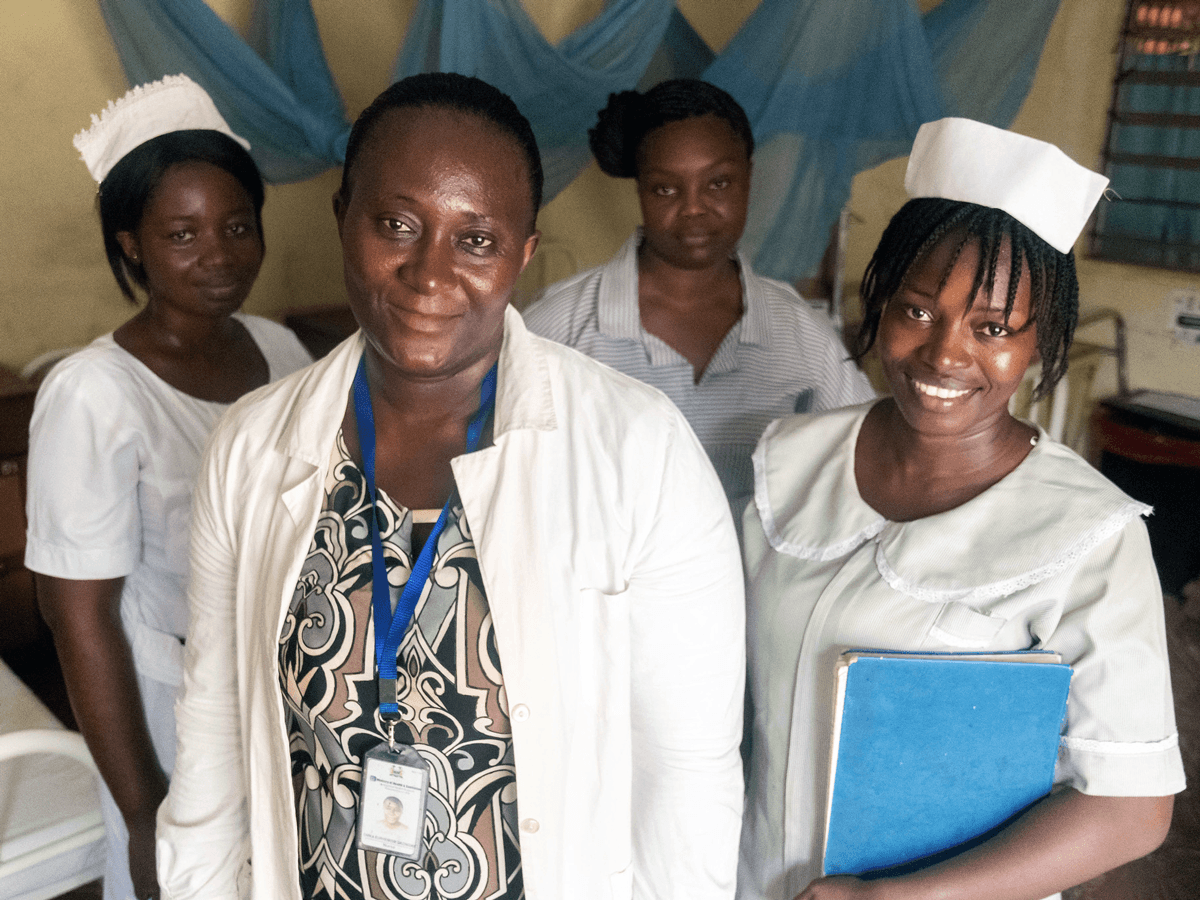Every year on May 12, the birthday of Florence Nightingale, founder of modern nursing, the world celebrates International Nurses Day.
ICAP honors this day and the dedication of nurses around the globe by bringing attention to their stories and achievements in delivering health care and shaping health policy.
“The wisdom and experience of nurses is fundamental to building health systems able to achieve universal health coverage rooted in strong models of primary health care,” said Susan Michaels-Strasser, PhD, MPH, RN, FAAN, senior implementation director and associate director for nursing programs for ICAP. “Globally, nurses are at the frontlines of primary health care; this year, let’s take the numerous lessons learned from HIV, where full engagement of nurses in comprehensive treatment programs has been a game changer.”
Reflecting the fact that nurses provide up to 90% of care in areas where ICAP works, and that training and retaining a sufficient number of skilled nurses is a serious challenge, ICAP has made it a major priority to strengthen nursing and midwifery education, continuing professional development, and professional networks.
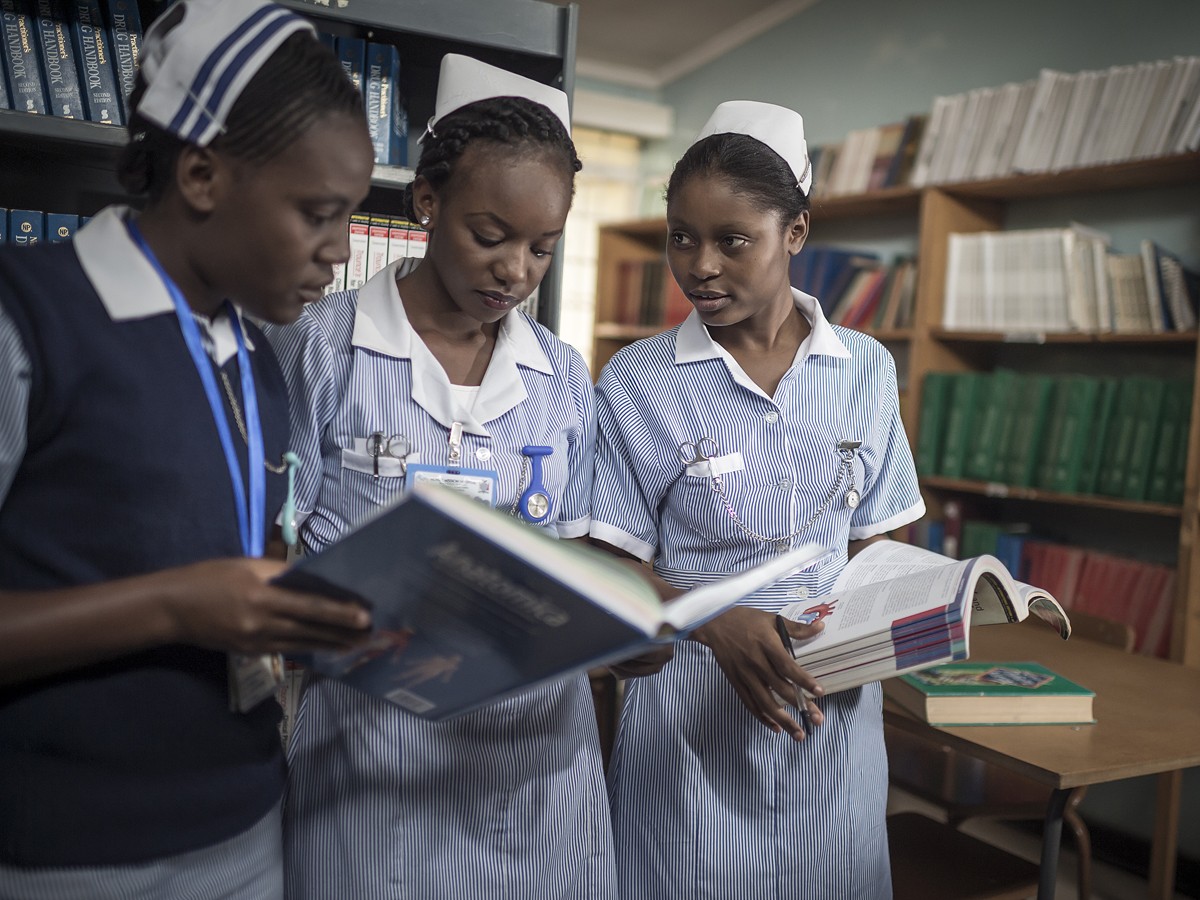
One of the most significant efforts in ICAP’s history was the eight-year Global Nurse Capacity Building Program, which trained 13,000 new nurses and midwives and strengthened nursing education institutions in 11 countries throughout sub-Saharan Africa. The project also helped nurses organize professional support networks to raise their voices and gain a seat in decision-making—for example in Mozambique, where ICAP supported the establishment of the country’s first nursing council. This work was supported by the U.S. President’s Emergency Plan for AIDS Relief (PEPFAR) through the U.S. Department of Health and Human Services, Health Resources & Services Administration (HRSA).
“Nurses are central to HIV treatment scale-up and epidemic control,” Michaels-Strasser said. “GNCBP has helped to ensure many more competent nurses are in practice where they are most needed.”
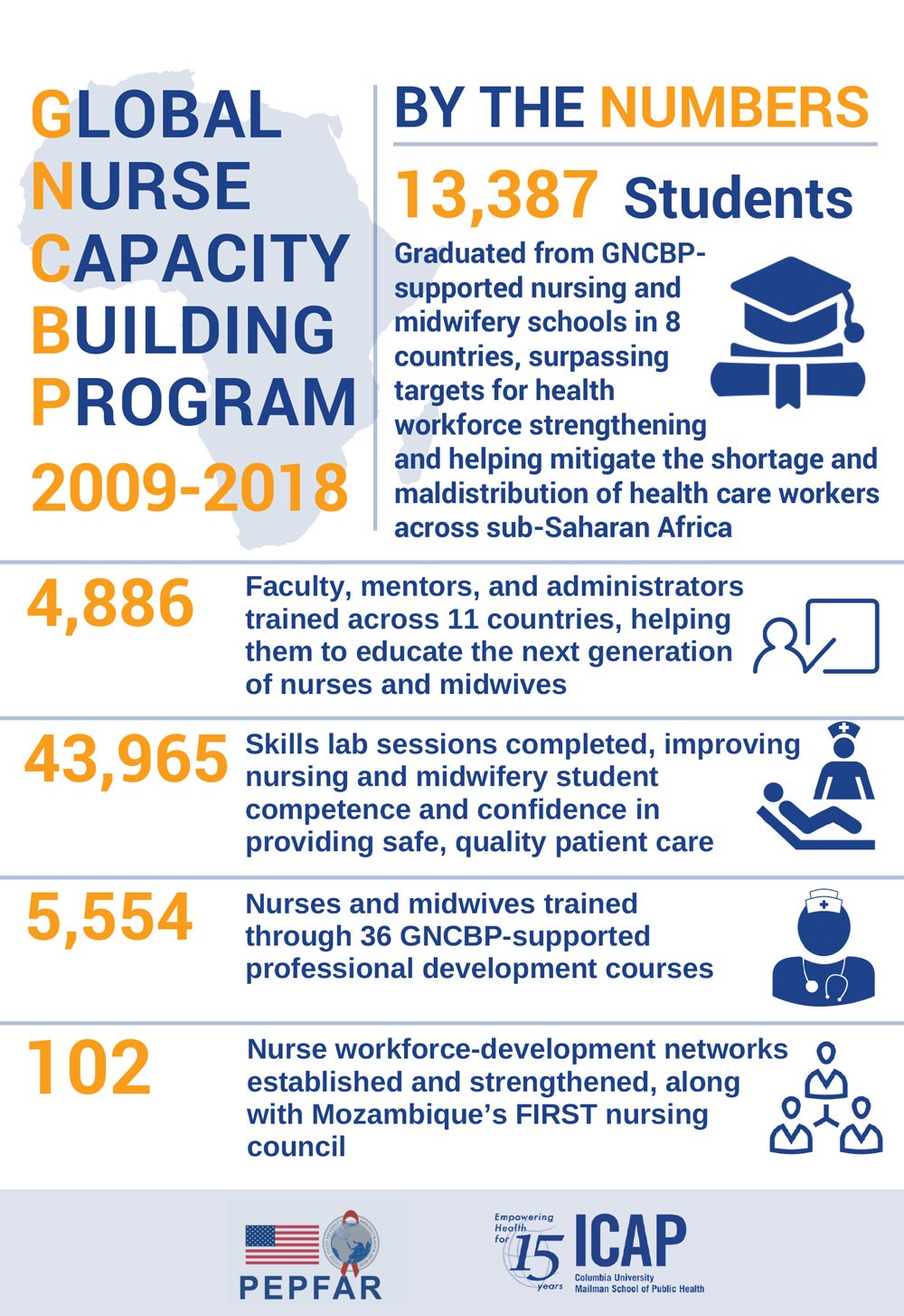
ICAP’s current work to strengthen nursing and midwifery is concentrated in Sierra Leone and the Democratic Republic of Congo, where ICAP is implementing the Resilient and Responsive Health Systems program funded by the U.S. Health Resources & Services Administration (HRSA). In Sierra Leone, activities have included strengthening curricula for nursing and midwifery education, improving training for instructors and mentors, and increasing practical learning opportunities—such as adding simulation mannequins and other updated equipment for skills labs, and creating a model ward at Freetown’s largest maternity hospital to improve infection prevention and control practices. ICAP’s partnership with Sierra Leone’s Ministry of Health and Sanitation also contributed to the country’s first-ever national strategic plan for nursing and midwifery, launched in March 2019.
“In these challenging times, nurses and midwives, who form the largest workforce globally, deserve more attention and focus more than ever before,” said Joan Shepherd, PhD, principal of the ICAP-supported National School of Midwifery in Freetown. “We are players in building global health security and we remain at the center of the global health system.”
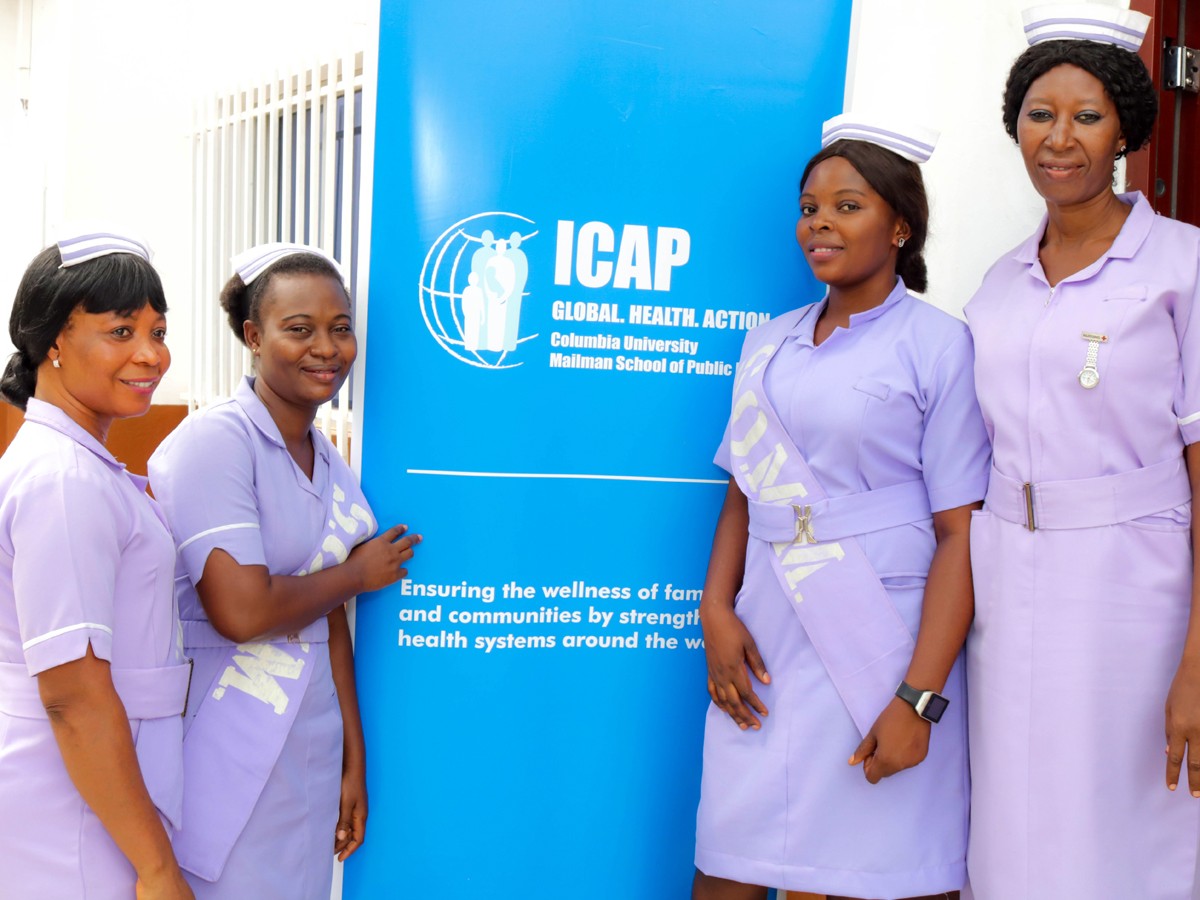
Nurses are also essential to the success of ICAP’s SUPPORT4HEALTH home-based care program for people living with HIV in Central Asia, supported by PEPFAR through the Centers for Disease Control and Prevention (CDC). Dinara Salimbayeva is one of the nurses at the East-Kazakhstan AIDS Center who travel to patients’ homes to provide outreach, education, and adherence support. She says the home visits help build trusting relationships and enable her to offer specific support for patients’ needs, without them having to risk identification and stigma by visiting the health facility.
“Sometimes it takes a personal connection to help someone get to where they feel confident in their own ability to care for their health,” Salimbayeva said.
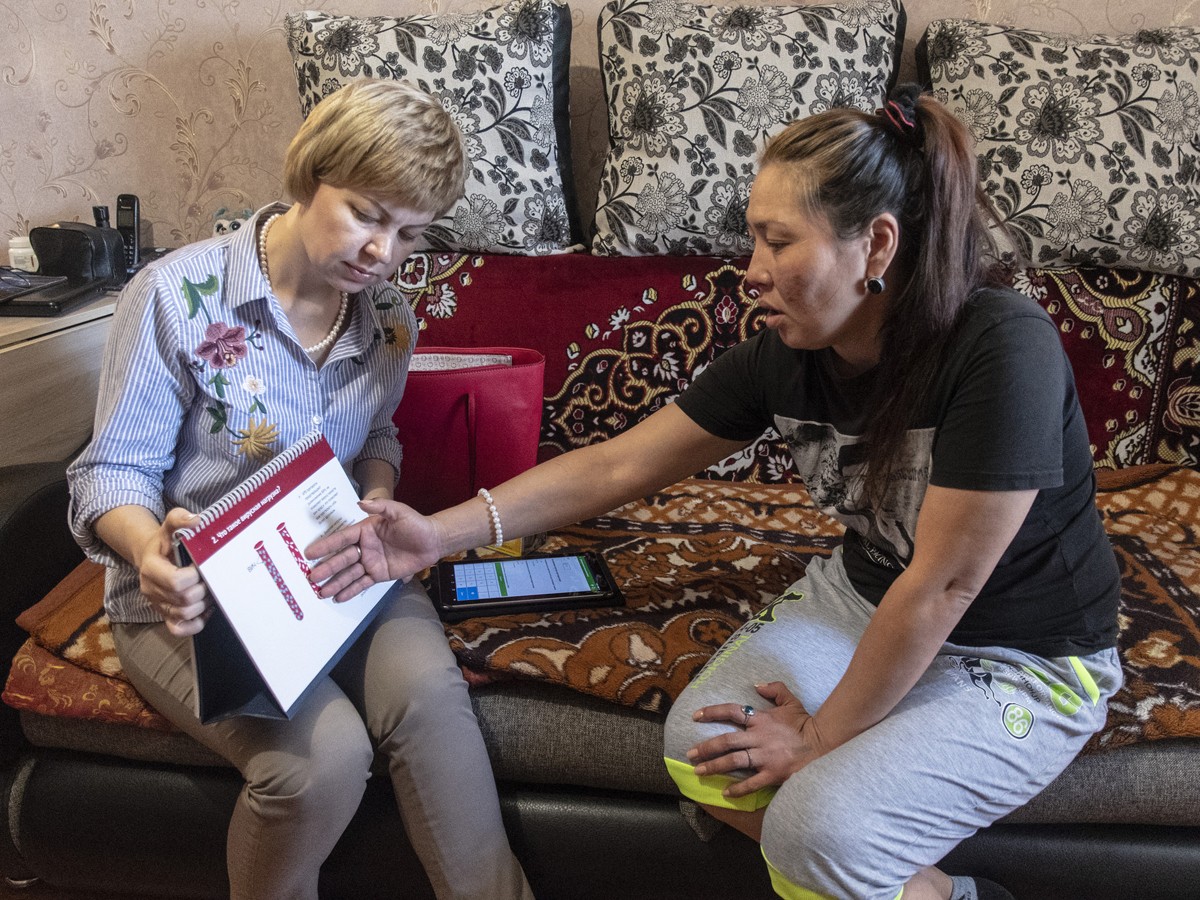
ICAP is a proud partner in NursingNow, a three-year global campaign to raise the profile and status of nurses worldwide. Judy Khanyola, MSc, ICAP’s Kenya-based regional nursing advisor, was recently appointed as the Africa representative for the campaign.
“It means I speak up for the nurses of Africa and work to showcase their tremendous unsung achievements! I love nursing and am very excited to be Africa’s NursingNow representative. Through this campaign, I will give a voice to and for nurses,” Khanyola said in a recent interview.
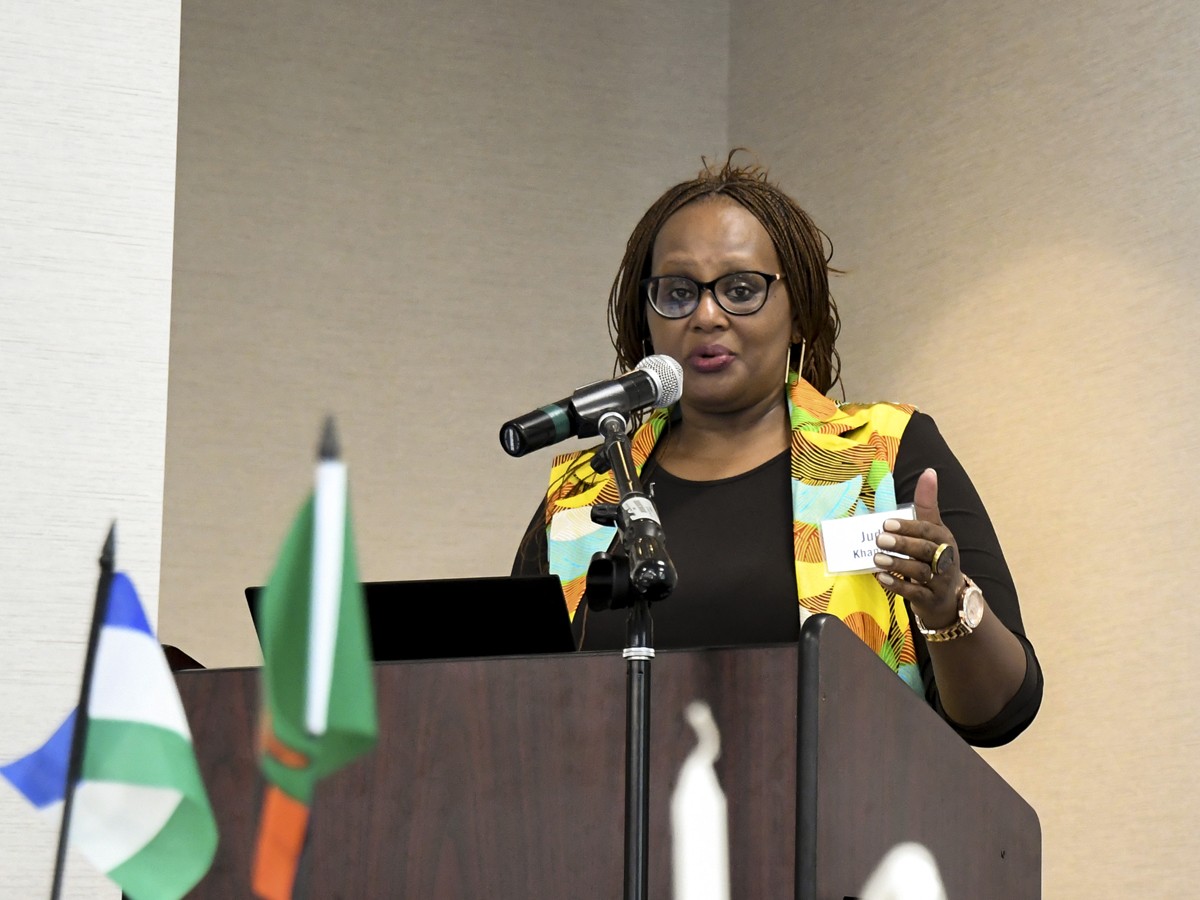
ICAP is also a leader in online and distance learning for nurses, with two courses currently on offer: “Online Training for Nurses and Midwives in Option B+” is available in English through ICAP’s nursing e-learning portal, and “Pediatric HIV Nursing” is available on the edX platform in both English and French.
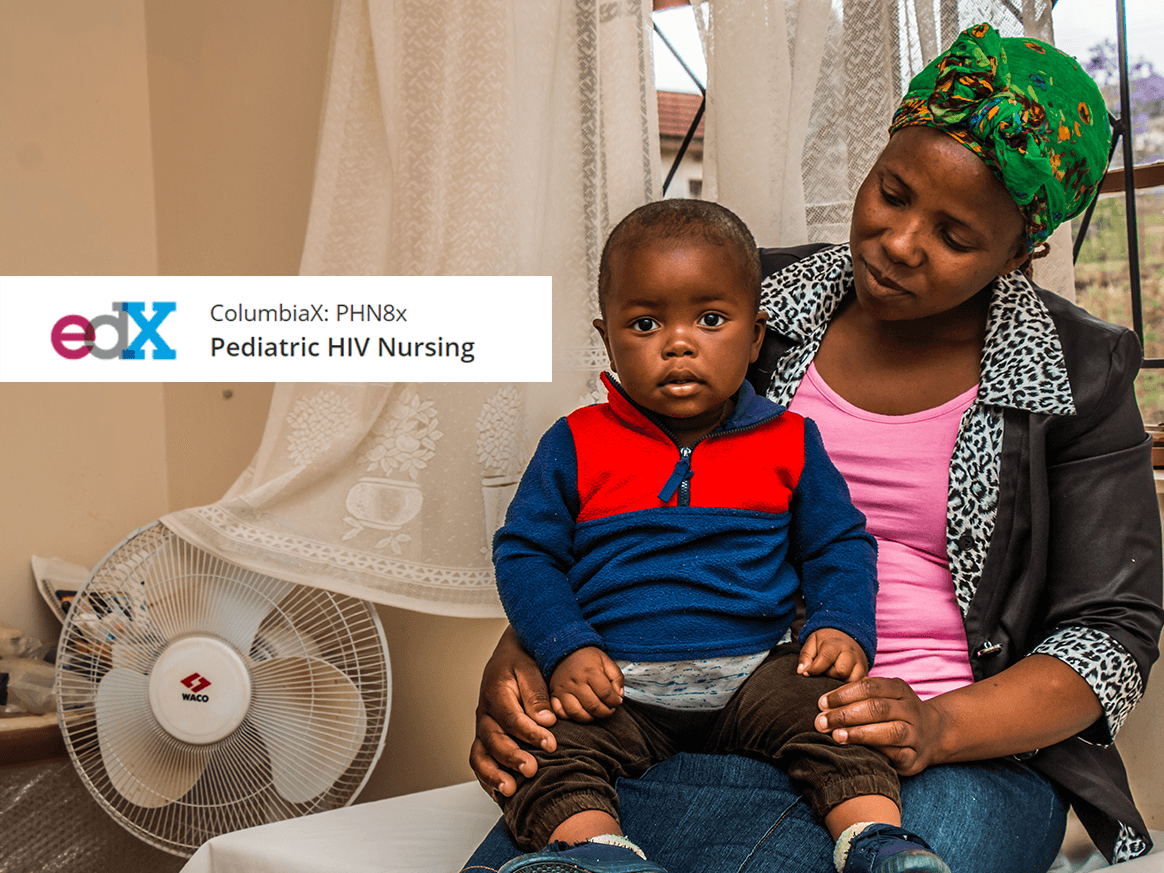
The U.S. commemorates National Nurses Week from May 6-12, culminating in International Nurses Day. All this week, ICAP has shared stories and special content to highlight and celebrate nurses. A few of these posts are below.
To all nurses and midwives far and wide, whose patient-centered approach saves lives every day—ICAP honors and thanks you!
Dinara Salimbayeva is one of the East #Kazakhstan #AIDS Center’s home visiting #nurses. “Sometimes it takes a personal connection to help someone get to where they feel confident in their own ability to care for their #health,” she says. Read: https://t.co/GdAw6WGfhH #NursesWeek pic.twitter.com/ziJqwACUAm
— ICAP (@ICAP_ColumbiaU) May 7, 2019
To see more #InternationalNursesDay posts, follow ICAP on Facebook, Twitter, and Instagram.
A global health leader since 2003, ICAP was founded at Columbia University with one overarching goal: to improve the health of families and communities. Together with its partners—ministries of health, large multilaterals, health care providers, and patients—ICAP strives for a world where health is available to all. To date, ICAP has addressed major public health challenges and the needs of local health systems through 6,000 sites across more than 30 countries. For more information about ICAP, visit: icap.columbia.edu


